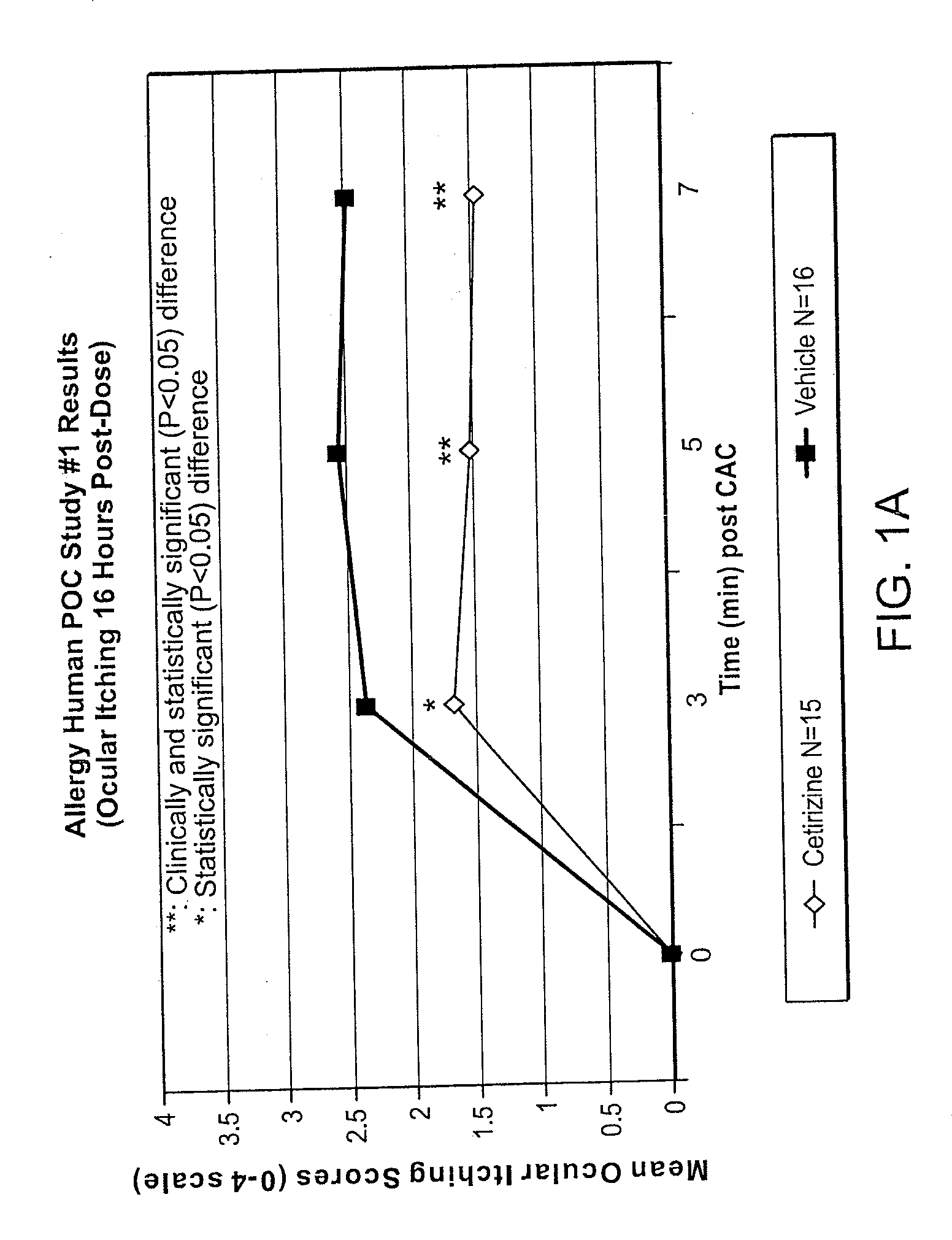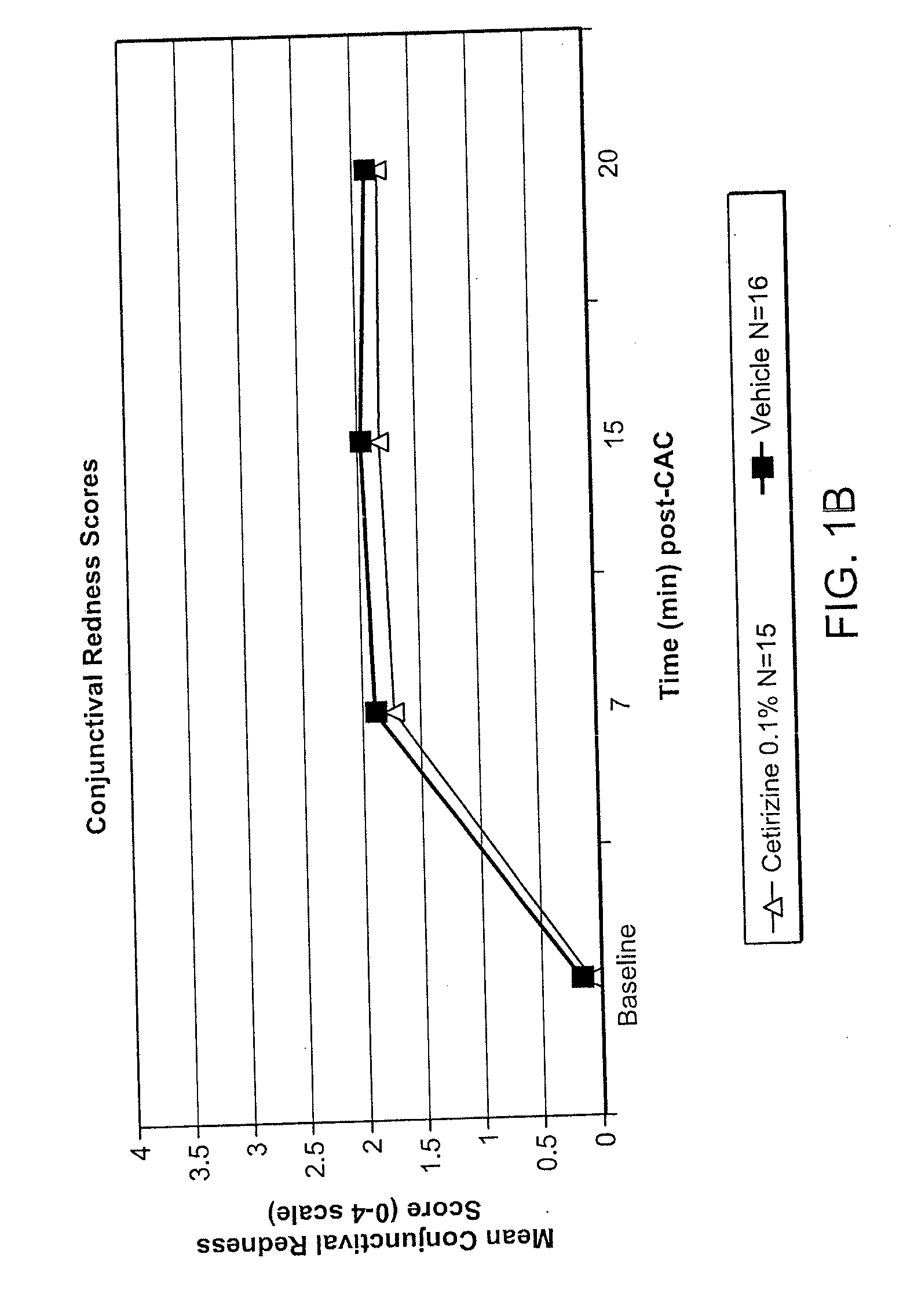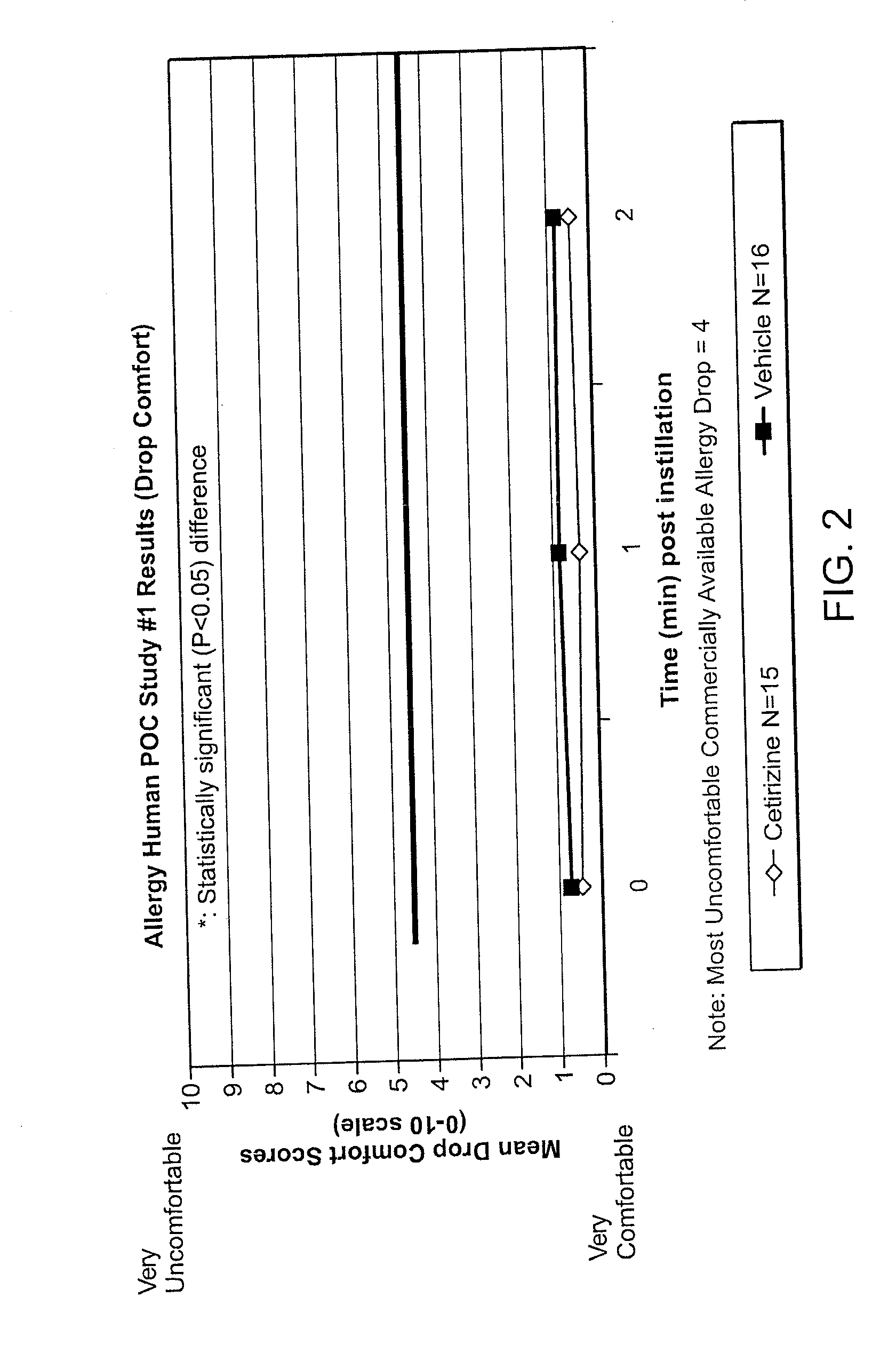Ophthalmic Formulations Of Cetirizine And Methods Of Use
a technology of cetirizine and ophthalmic formulations, applied in the field of op, can solve the problems that antihistamines and mast cell stabilizers such as cetirizine do not effectively block all allergic and pro-inflammatory mediators from the mast cell, and achieve the effects of reducing drowsiness and systemic exposure, stable, comfortable, and sa
- Summary
- Abstract
- Description
- Claims
- Application Information
AI Technical Summary
Benefits of technology
Problems solved by technology
Method used
Image
Examples
example 1
Cetirizine (0.1%) Prevents Ocular Itching Associated with Allergic Conjunctivitis
[0148]A placebo controlled, double-blind study was conducted to evaluate the efficacy of cetirizine 0.1% (N=15) compared to vehicle (N=16). Subjects underwent 2 screening visits (an allergen titration and confirmation) followed by a drug evaluation visit. At the drug evaluation visit, one drop of masked study medication was instilled in each eye and comfort assessments were taken. Sixteen hours later the subjects were challenged with allergen and allergic assessments were taken. The results are presented in Tables 1 and 2 and in FIGS. 1-2. The ocular itching score ranges from 0, no itching, to 4, severe itching. The comfort score ranges from 0, very comfortable, to 10, very uncomfortable (Note: The most uncomfortable commercially available allergy drop=4). The results demonstrate that a single drop of cetirizine (0.1%) ophthalmic solution (q.d.) was effective to prevent ocular itching associated with al...
example 2
Fluticasone Prevents Ocular and Nasal Symptoms Associated with Allergic Conjunctivitis, Rhinitis and Rhinoconjunctivitis
[0149]A placebo controlled, double-blind study was conducted to evaluate the efficacy of Fluticasone 0.001% (N=16), Fluticasone 0.005% (N=16), Fluticasone 0.01% (N=15) compared to vehicle alone (N=15). Subjects underwent 2 screening visits (allergen titration and confirmation) followed by 2 drug evaluation visits, as indicated in the study design shown in FIGS. 3A and 3B. At the drug evaluation visits, one drop of masked study medication was instilled in each eye and ocular allergic assessments were taken. Eight hours later the subjects were challenged with allergen and primary and secondary ocular and nasal endpoints were assessed, as well as safety of the formulations. The results are presented in FIGS. 4-23.
Primary Ocular Endpoints
[0150]Ocular itching, conjunctival redness, lid swelling, and nasal congestion were assessed in each subject during visit 4B.
[0151]Oc...
example 3
An Evaluation of the Effects of Topical Cetirizine / Fluticasone Ophthalmic Formulations on the Signs of Allergic Conjunctivitis using the Murine Model of Ragweed-Induced Active Anaphylaxis
[0171]Seasonal allergic conjunctivitis (hay fever conjunctivitis) develops in a subset of atopic individuals (those with a genetic disposition of hypersensitivity to allergens). The signs and symptoms of the condition are elicited by airborne allergens (e.g. ragweed, tree and grass pollens, animal dander). Seasonal allergic conjunctivitis is the most common form of ocular allergic disease and may account for up to 90% of allergic disorders seen.
[0172]The most common and distressing ocular signs and symptoms associated with allergic conjunctivitis are itching and redness. Swelling, mucous discharge and excessive tearing are frequently involved. In allergic conjunctivitis, airborne allergens presumably dissolve in the tear film, traverse the conjunctiva, and then bind with IgE antibodies attached to t...
PUM
| Property | Measurement | Unit |
|---|---|---|
| viscosity | aaaaa | aaaaa |
| viscosity | aaaaa | aaaaa |
| viscosity | aaaaa | aaaaa |
Abstract
Description
Claims
Application Information
 Login to View More
Login to View More - R&D
- Intellectual Property
- Life Sciences
- Materials
- Tech Scout
- Unparalleled Data Quality
- Higher Quality Content
- 60% Fewer Hallucinations
Browse by: Latest US Patents, China's latest patents, Technical Efficacy Thesaurus, Application Domain, Technology Topic, Popular Technical Reports.
© 2025 PatSnap. All rights reserved.Legal|Privacy policy|Modern Slavery Act Transparency Statement|Sitemap|About US| Contact US: help@patsnap.com



